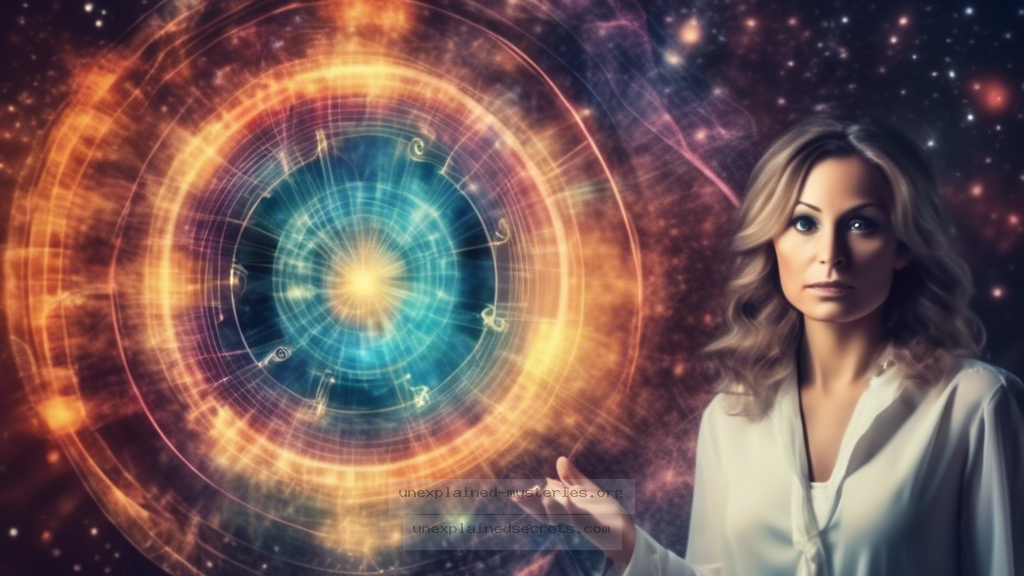Can Psychic Abilities Be Scientifically Verified Through Experimental Research?
Can Psychic Abilities Be Scientifically Verified Through Experimental Research?
The debate surrounding the existence and validity of psychic abilities has intrigued humanity for centuries. From clairvoyance to telepathy, these phenomena challenge our understanding of the mind and consciousness. But can they be scientifically verified? In this blog post, we will explore this compelling question, delving into historical contexts, documented cases, theories, and ongoing scientific investigations.
Introduction: The Significance of Scientific Verification
The quest to understand psychic abilities is not merely an academic endeavor; it poses questions about the nature of human consciousness, the potential of the mind, and the boundaries of science itself. With numerous anecdotal accounts and reports of psychic phenomena, the challenge lies in the lack of empirical evidence that meets rigorous scientific standards. As we explore this topic, we will also discuss why the intersection of science and the paranormal is essential for a holistic understanding of human capabilities.
Historical Context of Psychic Research
The exploration of psychic phenomena dates back to ancient civilizations, where oracles and shamans were revered for their supposed supernatural abilities. However, the modern scientific inquiry into psychic phenomena began in the late 19th century with the establishment of parapsychology as a field of study. Pioneers like Sigmund Freud and William James explored various aspects of the mind that hinted at psychic potential.
In the 20th century, significant research was conducted at institutions like the Parapsychology Laboratory at Duke University, led by J.B. Rhine. Rhine’s experiments, particularly on telepathy and clairvoyance, employed card guessing tests to measure psychic accuracy. Though the results were often met with skepticism, they laid the groundwork for future studies.
- J.B. Rhine – Pioneer of parapsychology.
- Joseph B. McMoneagle – Notable for his work in remote viewing.
- Rupert Sheldrake – Known for his research on morphic resonance and psychic phenomena.
Core Concepts: Understanding Psychic Abilities
Psychic abilities are often classified into various categories, including:
- Clairvoyance: The ability to gain information about an object or event without using the known human senses.
- Telepathy: The purported ability to read others’ thoughts or communicate mentally.
- Precognition: The ability to perceive or predict future events.
- Psychokinesis: The ability to move or influence objects with the mind.
These concepts challenge the traditional understanding of perception and cognition, often leading to discussions about the nature of reality itself. Some theories suggest that these abilities may be linked to quantum mechanics, consciousness, or even untapped human potential, though these hypotheses remain speculative.
Scientific Investigations: Current Research and Findings
Scientific investigation into psychic phenomena has faced challenges in terms of replicability and methodological rigor. However, several studies have attempted to explore these abilities systematically. One notable example is the Ganzfeld experiments, which aimed to test telepathy under controlled conditions. In these experiments, a “sender” attempts to transmit information to a “receiver” who is in a state of sensory deprivation.
Results have shown some statistically significant outcomes, but critics argue that such findings may be due to methodological flaws or biases. For instance, a meta-analysis of Ganzfeld studies published in 2005 indicated that while some results were promising, they were often inconclusive when subjected to stringent scrutiny.
- Replication crisis in psychological research.
- Potential for experimenter bias.
- Difficulty in establishing control conditions.
Real-World Examples: Documented Cases of Psychic Phenomena
Several high-profile cases have captured public interest and provided anecdotal evidence for psychic abilities. One such case is that of Uri Geller, who gained fame in the 1970s for his alleged ability to bend spoons and perform other feats of psychokinesis. While Geller’s demonstrations were met with skepticism, they prompted scientists to conduct investigations to discern the validity of his claims.
Another remarkable case is that of the U.S. government’s Stargate Project, which explored the use of psychic phenomena for military and intelligence purposes. This program included experiments on remote viewing, with various psychics attempting to gather intelligence from a distance. The results were mixed, with some successes but also significant skepticism regarding the replicability of the findings.
| Case Study | Phenomenon | Outcome |
|---|---|---|
| Uri Geller | Psychokinesis | Highly controversial; mixed scientific reviews. |
| Stargate Project | Remote Viewing | Some successes; ultimately disbanded due to inconclusive results. |
Alternative Perspectives: Skepticism and Debunking
Skepticism plays a crucial role in the discourse on psychic abilities. Many scientists argue that psychic phenomena are the result of cognitive biases, such as the Forer effect (the tendency to see vague descriptions as personally meaningful) or confirmation bias (favoring information that confirms pre-existing beliefs). Critics also emphasize the importance of replicability in scientific research, noting that many psychic claims lack consistent and reproducible evidence.
Organizations like the James Randi Educational Foundation have actively sought to debunk paranormal claims, offering cash prizes for anyone who can demonstrate a verifiable psychic ability under controlled conditions. This has led to significant scrutiny of many self-proclaimed psychics and has contributed to the ongoing debate about the legitimacy of psychic phenomena.
- Lack of empirical evidence.
- Cognitive biases and fallacies.
- Need for rigorous scientific methodology.
Common Misconceptions About Psychic Research
Despite the wealth of literature and studies on psychic phenomena, several misconceptions persist:
- All psychics are frauds: While some may be deceitful, there are individuals who genuinely believe in their abilities.
- Psychic abilities can be proven easily: The scientific method demands rigorous testing, which is challenging in this field.
- Psychic phenomena are purely entertainment: Many researchers and practitioners approach these topics with a serious academic interest.
By addressing these misconceptions, we can foster a more nuanced understanding of psychic research and its implications. It is essential to differentiate between skepticism and outright dismissal of the phenomena that challenge conventional wisdom.
Best Practices for Investigating Psychic Phenomena
If you are interested in exploring psychic abilities or engaging in research, consider the following best practices:
- Maintain an open mind: Be willing to explore various perspectives without bias.
- Use controlled methods: Employ rigorous scientific methodologies to minimize biases.
- Document findings: Keep detailed records of observations and results to support reproducibility.
- Collaborate with experts: Work alongside psychologists and scientists to ensure credibility.
By adhering to these practices, researchers can contribute to a more robust understanding of psychic phenomena, whether they ultimately validate or debunk the claims.
Future Developments: Ongoing Research Directions
The field of parapsychology continues to evolve, with new research avenues emerging. One promising direction is the exploration of the neurological basis of psychic phenomena. Advances in neuroimaging techniques, such as fMRI and EEG, may help researchers identify brain patterns associated with purported psychic abilities.
Additionally, interdisciplinary studies that combine psychology, neuroscience, and quantum physics may shed light on the mechanisms behind psychic phenomena. As technology advances and our understanding of consciousness deepens, the potential for validating psychic abilities may become more feasible.
- Neuroimaging studies of psychics.
- Quantum theories of consciousness.
- Interdisciplinary approaches to parapsychology.
Conclusion: The Ongoing Mystery of Psychic Abilities
The question of whether psychic abilities can be scientifically verified remains open. While anecdotal evidence and historical accounts abound, the rigorous scientific inquiry into these phenomena faces significant challenges. Understanding psychic abilities requires a balanced approach that considers both skepticism and openness to the unknown.
As research continues, the intersection of science and the paranormal presents a fascinating frontier for exploration. Whether psychic phenomena are ultimately validated or debunked, the journey to uncover the mysteries of the human mind is one that holds profound implications for our understanding of consciousness, reality, and what it means to be human.
Other Articles
Recent Posts
- What Happened to Flight MH370? The Conspiracy Theories That Still Haunt Us
- What Secrets Lurk Within the Walls of the Infamous Trans-Allegheny Lunatic Asylum?
- What Evidence Supports the Existence of Bigfoot in the Pacific Northwest?
- What Happened to the Indus Valley Civilization? Unraveling the Mysteries of Ancient Urban Life
- Can Telepathy Be Scientifically Proven Through Laboratory Evidence?







